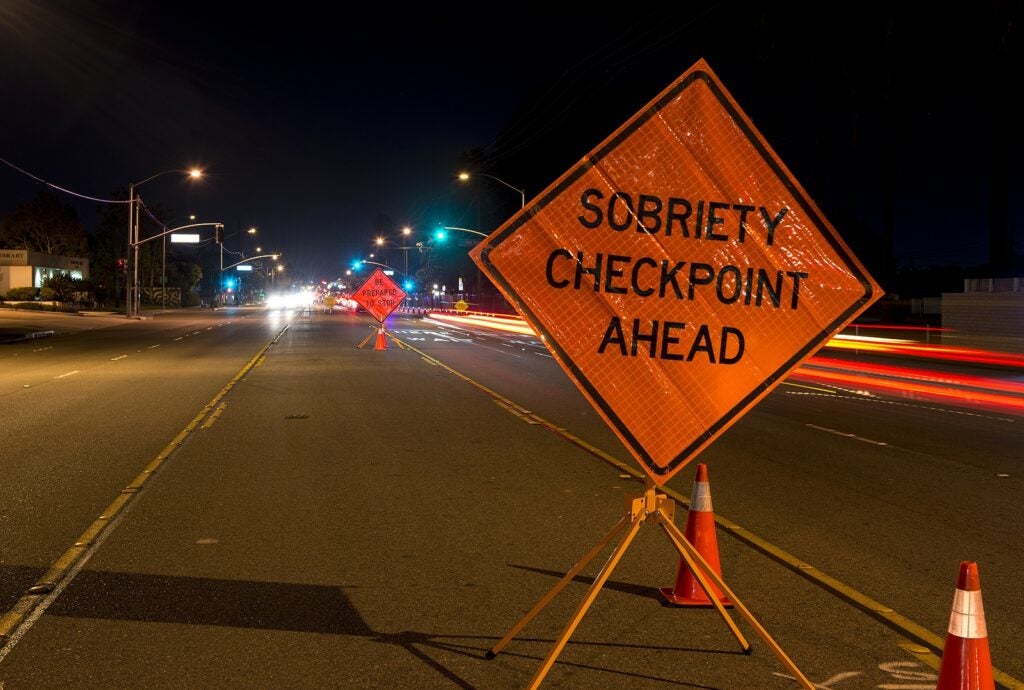The flight deck is a place that requires clear, sober decision-making, sometimes in the face of rapidly changing information and confusing sensory input. Being a pilot is challenging. For most of us, the challenge is what drew us to flying in the first place and continues to make it such a worthwhile pursuit.
As any experienced pilot can attest, there are times when landing safely requires every ounce of mental and physical capacity we can muster.
Aeromedical Risk
The purpose of the FAA medical certification process is to enhance aviation safety by limiting the possibility that a pilot at risk for sudden or insidious incapacitation might find themselves behind the controls of an airplane with lives at stake. Most people grasp that concept intuitively when it comes to seizure disorders and heart attacks. Few people—including pilots themselves—would argue with the notion that pilots who could become unconscious at a moment’s notice should not be allowed to fly.
The discussion becomes more nuanced when considering conditions that cause subtle or insidious impairment. Aeromedical risk is difficult to quantify. From depression and ADHD to heart disease and diabetes, the FAA’s medical certification policies have been trending in a more permissive direction for years.
More than ever, pilots with significant medical diagnoses who can demonstrate their conditions are well managed can still qualify for a FAA medical certificate. DUI arrests and convictions are a special case.
DUIs by the Numbers
There are two key regulations that apply to rated pilots: 14 CFR Part 61.15 and 14 CFR Part 67. The first of these requires that anyone who holds a Part 61 certificate—including student, sport, and recreational pilots—must report any alcohol- or drug-related motor vehicle action to the FAA within 60 days. The second concerns the FAA’s medical certification standards and often involves much more time and effort in which to comply.

Details on reporting procedures and reportable events are somewhat beyond the scope of this article. Generally speaking, if you’ve been convicted of DUI, DWI, or OWUI, or had your driver’s license canceled, suspended, or revoked for an alcohol- or drug-related reason, 14 CFR Part 61.15 probably applies to you. It is a good idea to consult with an experienced attorney if you find yourself in that predicament.
While 14 CFR Part 67 does not specify a reporting deadline, it applies even more broadly than Part 61.15 and involves a much more complicated process. Under Part 67, any pilot who applies for a medical certificate must report “any arrest(s) and/or conviction(s) involving driving while intoxicated by, while impaired by, or while under the influence of alcohol or a drug.”
That applies to aspiring pilots the same as it does for already certificated ones, and it applies to any event “ever in your life.”
Until you satisfy both of those regulatory requirements, you should not return to flying.
Can You Still Fly after a DUI?
The FAA rightfully takes drug and alcohol offenses seriously, especially when they involve operating a vehicle. Rated or aspiring pilots with one of these events in their background will need to satisfy a significant burden of proof to show that their substance use does not pose a risk to aviation safety. However, it is possible to be a pilot after a DUI.
The FAA is less concerned about the offense itself than what it suggests about substance use. The rest of this article will focus on medical certification standards after a DUI or alcohol arrest, but they apply the same principles when considering pilots who have run into issues with other drugs.
We all know the best course of action is never to get behind the wheel of a car if there is even the slightest chance you could be impaired by alcohol. That said, people make mistakes. Some make even bigger mistakes. The FAA considers three main questions when deciding whether or not to issue a medical certificate to a pilot with a DUI on record.
How Much Did You Drink?
When it comes to DUIs, blood alcohol content (BAC) provides a convenient way to measure how big a mistake you made. At higher values, it can also suggest there was no “mistake” at all.
The legal BAC limit for driving in most U.S. jurisdictions is 0.08. To fly an airplane, pilots must wait at least eight hours after consuming any alcohol and have a BAC less than 0.04.
Driving with any alcohol in your system probably is not a good idea, but it is still legal to a point. Drivers arrested with a BAC of 0.09 can probably explain it away as a mistake that is less concerning for alcoholism. However, at larger BAC values, such as 0.15 or higher, the list of those willing to help explain things away as a mistake decreases precipitously.
The FAA’s medical certification policies regarding BAC are surprisingly humane. If you were arrested for a DUI and your blood alcohol level was less than 0.15, you will get a chance to tell your story. The agency will consider a personal statement and may grant a certificate sooner than you would expect.
How Many Times Has It Happened?
As the saying goes, “fool me once, shame on you; fool me twice, shame on me.” Under many circumstances, the FAA is willing to give pilots the benefit of the doubt. A single DUI arrest with a BAC less than 0.15 will earn a chance to plead your case. In some circumstances, your aviation medical examiner (AME) may even be able to receive permission to issue a certificate without waiting for the FAA to review your case in more detail.
If you have had more than two DUIs or alcohol-related arrests, it is a much different story. Especially for rated pilots, your first DUI arrest should be a huge wake-up call. Getting a second one can send a message that drinking is more important to you than flying. The FAA is not trying to punish drinking and driving. It is trying to prevent alcoholics and drug addicts from flying airplanes. Few things point toward those issues more accurately than repeated substance-related legal issues.
If you have had more than one DUI, you can still qualify for a medical certificate, but it will probably mean abstaining from alcohol for the duration of your aviation career and participating in a monitored recovery program.
How Long Ago Was It?
Everyone gets to be young and stupid. Was your DUI arrest when you were 17 driving home your high school prom? Or did it jeopardize your family’s livelihood in your mid-30s or later? Those are two quite different events. Even if you have never had a DUI, most have a story from their high school or young adult years about some kind of poor judgment they would never repeat. As it relates to your medical certificate, it is who you are now that matters.
The FAA considers arrests older than five years much more leniently than newer ones. Events 10 or more years in the past can be dealt with using an even softer touch. A lot of personal growth and maturity can develop in five or 10 years. The FAA takes that into account when considering medical certifications. Again, its goal is to make sure that alcohol and drug abusers do not threaten the federal airspace, not to rub pilots’ noses in their past mistakes.
Every Case Is Different
Are you an aspiring pilot with a single DUI and BAC of 0.10 that happened seven years ago? If so, your AME can issue your certificate. You will still need to prepare a personal statement that summarizes the event and describes your past, present, and anticipated future relationship with alcohol. You will also need to provide some official record that corroborates your story—especially the part about your BAC at the time of arrest. However, if your story is similar to this example, it should not delay your medical certification. Even if your DUI was more recent, your AME may be able to negotiate issuing your certificate without prior FAA review.

What if you are an airline pilot who had a DUI two months ago and your BAC was 0.15 or higher? Your path to obtaining a medical certificate will be a bit longer. The higher BAC will raise its own red flags, and the fact that you were arrested as a professional pilot, likely during your mature adult years with your career at stake, suggests you may well be an alcoholic.
If you have more than one DUI arrest in your past, or other substance-related legal issues, it will require a long period of time and effort to qualify for a medical certificate. There are some situations where this may not be true, but the FAA generally considers multiple DUIs to be proof of substance dependence.
Approaching Your AME Exam
You should approach your medical certificate application after a DUI the same way as for any new medical condition. First, get treated and get better. If you have a problem with alcohol or drugs, use the opportunity to look in the mirror and address the problem head-on. Even if you do not have an issue with dependence, make sure you have resolved the legal, financial, and administrative aftermath of your arrest to the point that you can focus on flying again.
Next, make an honest self assessment. If you’re safe to fly, the FAA will most likely agree with you. The time and effort it takes to prove that will depend on your unique situation and all the factors discussed earlier. Still, if you legitimately do not have an alcohol problem or are well established in recovery, you can still begin or resume life as a pilot.
Be honest with the FAA too. Besides the fact that the FAA’s review of the National Driver Register may render lying a fruitless endeavor, few things will complicate, or end, your career as a pilot more reliably than deliberately concealing a DUI from the agency.
Learn as much about the medical certificate application process as you can before your AME appointment. A well-prepared application can shave months off the time it takes the FAA to consider your application. Always treat your AME exam like a check ride.
DUIs do not end flying careers, but untreated substance dependence and repeated abuse do. Any DUI arrest will trigger a serious and open conversation about your alcohol use, but the FAA takes a reasonable—if slow and bureaucratic—approach to evaluating who can return to the flight deck. If you are willing to engage in that conversation, chances are you still have a promising flying future.


